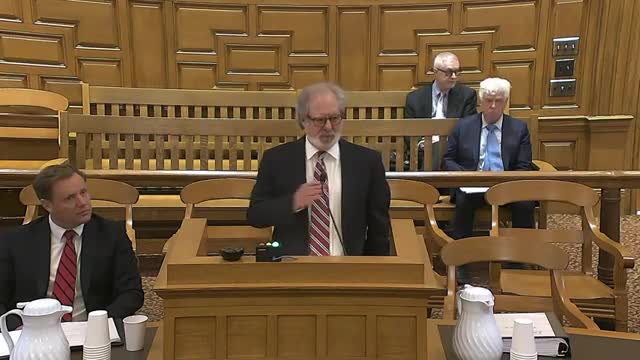Appeals court considers whether parents’ letter to school committee was petitioning activity in anti‑SLAPP dispute
October 10, 2025 | Judicial - Appeals Court Oral Arguments, Judicial, Massachusetts
This article was created by AI summarizing key points discussed. AI makes mistakes, so for full details and context, please refer to the video of the full meeting. Please report any errors so we can fix them. Report an error »

The Appeals Court heard arguments Oct. 10 in a defamation and civil‑rights suit arising from a parents’ group letter sent to school officials and other parents after classroom incidents involving a student with disabilities. The defendants, Mark and Abby Thorell, moved to dismiss under Massachusetts’ anti‑SLAPP framework, arguing the letter was petitioning activity directed to public officials with authority to act.
Plaintiff’s counsel argued the letter went beyond a narrowly targeted request for IEP review or school-level remedies and instead broadly accused the child of daily intimidation, destruction and racist remarks. Counsel for the parents said the letter was intended to enlist public participation and seek redress from officials who could affect school supports and policies; they noted copies were sent to the principal, the teacher and the school committee.
The panel probed whether the letter’s recipients included officials who had legal authority to grant the relief the parents sought and whether the letter’s factual claims had an arguable basis. Defense counsel cited precedent requiring that a defendant’s petitioning have an objectively reasonable factual basis and argued that contemporaneous teacher emails and principal responses corroborate that disruptions occurred. Plaintiffs countered that the letter’s broad wording and wide distribution—copying the entire administration and other parents—transformed a legitimate petition into a campaign that targeted a protected child’s right to education.
Justices questioned whether parents may reasonably rely on reports from their children as the factual basis for a petition to school officials, and whether statements to other parents and the broader public are protected when they seek school action. The panel also considered recent high‑court guidance on petitioning immunity and whether the Thorells’ affidavits satisfied personal‑knowledge requirements.
Argument concluded and the court took the case under advisement.
Plaintiff’s counsel argued the letter went beyond a narrowly targeted request for IEP review or school-level remedies and instead broadly accused the child of daily intimidation, destruction and racist remarks. Counsel for the parents said the letter was intended to enlist public participation and seek redress from officials who could affect school supports and policies; they noted copies were sent to the principal, the teacher and the school committee.
The panel probed whether the letter’s recipients included officials who had legal authority to grant the relief the parents sought and whether the letter’s factual claims had an arguable basis. Defense counsel cited precedent requiring that a defendant’s petitioning have an objectively reasonable factual basis and argued that contemporaneous teacher emails and principal responses corroborate that disruptions occurred. Plaintiffs countered that the letter’s broad wording and wide distribution—copying the entire administration and other parents—transformed a legitimate petition into a campaign that targeted a protected child’s right to education.
Justices questioned whether parents may reasonably rely on reports from their children as the factual basis for a petition to school officials, and whether statements to other parents and the broader public are protected when they seek school action. The panel also considered recent high‑court guidance on petitioning immunity and whether the Thorells’ affidavits satisfied personal‑knowledge requirements.
Argument concluded and the court took the case under advisement.
View full meeting
This article is based on a recent meeting—watch the full video and explore the complete transcript for deeper insights into the discussion.
View full meeting
